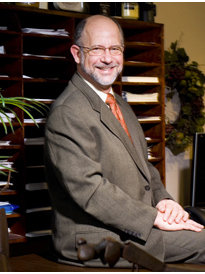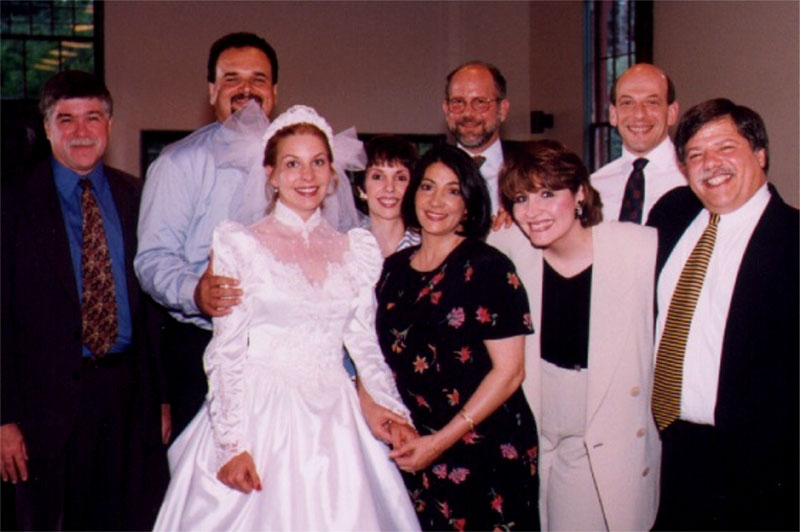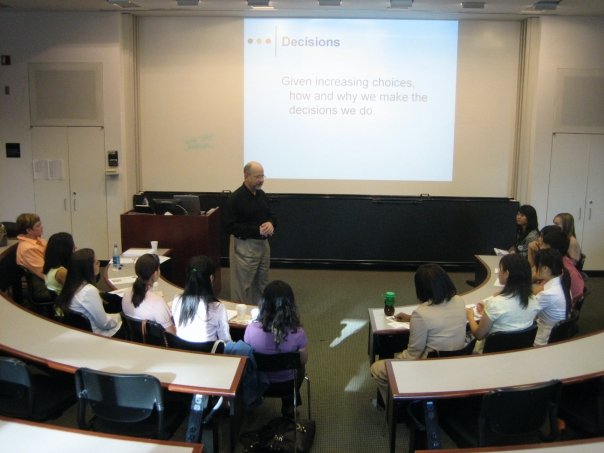Rest In Peace, Art Schoeck
To understand the depth of my grief for the loss of my friend Art Schoeck, you’d have to know something about the context.
In 1991, I had applied to the Graduate Institute of Liberal Arts at Emory University, and moved from Iowa City to Atlanta without knowing whether or not I was accepted. Â I had intended to get my Ph.D. from the University of Iowa, but had taken a Masters degree and left when I wasn’t able to pursue my work in interdisciplinary studies in comparative religion. The Department of Religion was too conventional. The best I could do was to get a background in philosophical theology and contextual ethics. It was a valuable grounding, but I needed to pull imagination back into the picture. Religious studies was pastoral, bible-based, or…Â archaeological, not at all interested in the imaginative or speculative spirit. Literary studies was allergic to religion too, and I wanted to look at cultural productions – poetry, literature, art, music, film – in terms of truly human spiritual themes. It was difficult then. Perhaps it’s impossible now.
When IÂ arrived in Atlanta, I didn’t have much. I got an apartment, and looked for some way to earn my rent while waiting to hear from the Emory program. I worked for a short time at a shop called Coffee Plantation – this was before Starbucks and other coffee shops had really taken hold. It was within walking distance of my apartment but within a week or two I was reassigned to a location in North Atlanta, and the manager… well, that’s another story. The appearance of Robert Roffwarg on his coffee run was always a bright spot in my day because he had a wonderful sense of humor. We got to talking here and there, and one day (after a particularly witty exchange) he suggested that he wanted to introduce me to a friend of his who might have a better job for me: Art Schoeck. So much followed that pivotal moment of humor and sympatico. Among other things, Robert married his love Georgine years later – in Art’s back yard.
I had the address in my hand, but I wasn’t sure it was the right place. It was just a house, not too far from my apartment and Emory. I wondered if this was a mistake, but I went in anyway. I really didn’t like the job I had. A small business could be run from someone’s house. I guess. Robert didn’t seem like the kind of guy who would set me up for a bad situation, but you never know. If there was something shady about it, I’d just hightail it out of there, that’s all.

Art ushered me in, and said that I needed to take a behavioral style profile before we talked about what kind of job he might have. I had never heard of that before, but I enjoy taking tests, so it actually put me at ease. When he got the results, he was elated. “We can work to raise your D for the context,” he said, “but your I is just right. Low S – good, we need innovation and a quick pace. You’re trying to raise your S. You don’t need to do that here. C above the line. You’ll follow the rules – as long as you agree with them.” He went on to give an animated presentation of my strengths and weaknesses, the best ways to communicate with me and things to avoid, how I would likely react to stress. “Look here – the cat’s claw – don’t back YOU into a corner.” He laughed, and told me that he needed an employee part-time to start maturing the business. He had a box of invoices, post-it tabs marking the ones that were still unpaid. He was a corporate consultant, a troubleshooter on team-building, executive coaching, sales strategies.
During my first week, I met my first co-worker, Elaine Fuerst, a  charming woman with a background in marketing (and who was the only one to offer a decent toast at my wedding years later). She showed me the introductory sales letter templates they had begun developing, and the materials to mail to prospective clients. In those days, it was quite a pile of paper. The DISC packet, the graph, a pricing list for diskettes, and so on. It seems centuries ago now. Frank Sproule was Art’s original mentor in DISC, and Victor Paul was onboard as a salesman. Howie Lichtman, that big luvable lunk, was Art’s friend, and worked for him in a side business of color business cards and magnets.
 I did get accepted to the program at Emory, but I didn’t stop working at Data Dome, Inc. I worked for Art on and off for many years. He offered a very generous wage for part-time employment, and he was flexible about hours, as long as someone was there to answer the phone. He valued my particular mix of creativity and practicality, and I always needed more cash than what my student loan could provide. Besides, it’s always good to keep something very concrete in your life so that theoretical study doesn’t disconnect you from society and your reality on the ground. The flexibility was great for me – my life was ever changeable.  When I went to live in Paris for a year, my job was waiting for me when I got back. When I had my son, the same. If I needed more hours, I’d focus on a new initiative, but I’d always leave everything easy to run for when I was there less often. If I had been interested in sales, I probably could have had a career doing that, but didn’t want to encourage any ugliness from any part of my previous Jehovah’s Witness evangelism that might still be lurking in my psyche. So instead, we worked to build a business profile and a support system that could support his growing client base.
I did get accepted to the program at Emory, but I didn’t stop working at Data Dome, Inc. I worked for Art on and off for many years. He offered a very generous wage for part-time employment, and he was flexible about hours, as long as someone was there to answer the phone. He valued my particular mix of creativity and practicality, and I always needed more cash than what my student loan could provide. Besides, it’s always good to keep something very concrete in your life so that theoretical study doesn’t disconnect you from society and your reality on the ground. The flexibility was great for me – my life was ever changeable.  When I went to live in Paris for a year, my job was waiting for me when I got back. When I had my son, the same. If I needed more hours, I’d focus on a new initiative, but I’d always leave everything easy to run for when I was there less often. If I had been interested in sales, I probably could have had a career doing that, but didn’t want to encourage any ugliness from any part of my previous Jehovah’s Witness evangelism that might still be lurking in my psyche. So instead, we worked to build a business profile and a support system that could support his growing client base.
When an economic recession hit Massachusetts, I encouraged my younger brother to move to Atlanta to finish his college degree. He was good with computers, and he worked for Art too – setting up the home network, updating it, creating an invoicing system that could run on Microsoft Access, advising on the purchasing of additional workstations, and so on.
Eventually, we moved from diskettes to online profiling, from mailing piles of paper to websites and digital publications. I wrote manuals, provided technical support, designed a web site, wrote press releases, and eventually mentored clients in their DISC certification (teaching is not selling). We enlarged the product base, so there was oral drug testing and 360-degree evaluations and integrity tests and skills assessments and values rankings, and a range of workshops and seminars.

He redesigned his house and yard – it was in Better Homes and Gardens – and I loved to play with their dogs and walk in the backyard, with its beautiful ponds and walkways. His wife Calland is an amazing interior designer, on top of all her other talents, so it was a great space to work in. It really is extraordinary what they did with that house and property. Art’s home was his castle. Calland was a gracious presence and I liked spending time with her too (not to mention that she always found some beautiful piece of clothing or jewelry for them to give me on my birthday).  The atmosphere at work was either playful and low-key or very intense and focused – the interplay was perfect for my bursty style of working. I never stopped learning new things, and never ran out of challenges. I was always meeting new people, and I really enjoyed the environment and the people. Over time, Art and Calland became part of my family. Everyone came to my wedding.

Art was always very generous – with one caveat. Everything always had to be completely honest and aboveboard. If he got the feeling that someone was yanking his chain or trying to cheat him, he would become very angry and legalistic. I can still hear him saying “Just to let you know, I’m recording this conversation” to some poor soul on the telephone. He was a loyal and honest friend and a formidable opponent. He taught me a lot even in that. I was a bit naive – but through his example I learned to document everything. You never know. And sometimes you do know. There have been times when such documentation saved my husband and me from a lot of grief. I learned to ask a lot more questions, and to debate things when they didn’t seem quite right.
I continued to resist sales, but because I handled such a wide range of creative and technical projects, I got great experience in everything from PR to marketing to technical writing to customer support to graphic design to html to content management systems to accounting. I could run a small business very effectively, I think, just because of what I learned working there. When we expanded, he hired the lovely Sandy Stigall to handle most of the non-sales client contact as well as the billing. I was very happy to train her to do just that so that I could focus on creating the business image and start learning about SEO strategies, online sales and marketing, and communication strategies. I set up the blog. We did some link-building. And we got good recommendations. Before too long, it became a very successful business.
The heart of the enterprise was his work. He had a deep understanding of how to really get benefit from these assessments, and testimonial after testimonial showed the extent of demonstrable value. And he loved it. He loved it. To listen in at the edges of an executive coaching call, or a mediation between conflicting personalities, or a consultation on using DISC to tailor sales to the style of the prospect taught me a million little things that I could never adequately relate. All I can say is – it sure gave me a lot more than my minor in Psych!
Art was a real personality, with charisma, and he mentored me. He forced me to talk to CEOs and VPs and Sales Directors until I was no longer intimidated by them. Because of him, I never was intimidated by anyone again, and I never hesitated to speak because of some misplaced notion of social position. He worked with me on my perennial frustration issue when dealing with difficult people, and would remind me that I already had the strategies if I just stopped to think about it. He was always right about that.
Eventually, I had to move on. By the time I finished my Ph.D., I had some debt. That debt had, shockingly, been accruing interest the whole time I was in graduate school. The situation was ugly, and I had to start paying. I also needed more benefits, especially in terms of retirement. My brother had finished his degree, and was in something like his third or fourth corporate job at the time. He returned the favor, and told me about a job that I could easily qualify for, and I got it. Such was my farewell to the world of consulting, and my entrance into the corporate environment.
I created a huge manual on how to do everything I was doing before I left. I did it more efficiently and accurately than anything I’d done before, I think. That exercise alone taught me useful skills in organization and priorities. I didn’t have much time, and I wanted him to be able to refer to something that would address any question I could think of that he might have. If I had only had that kind of motivation for my dissertation, I would have been done with it years sooner than I was.
One thing about Art was that he loved music. He played the church organ when he was a kid – raw talent – and his ear for it outlasted his tolerance of the world of organized religion. Sometimes when he was in the right mood, he’d disappear into the house (by this time, the garage had been converted into a two-story office of impeccable design and lots of glass) and play the piano. He had a special speaker system installed throughout the house and sometimes he’d play music over that. And yet – if a client was calling, he’d drop everything to focus on that.  Art found a conceptual artist and writer – David Cohen – to help him with his book, the web site and the blog. I really like his work – maybe there’s enough to finish the book. More recently, he also found the talented Lisa Bouchard to help out with sales and training. Sandy is still there – the anchor – and being the anchor right now too, I think.
We talked often about a wide range of topics – religion, politics, relationships, experiences. He was a true friend. He always made me feel very special, and his confidence in me never flagged, no matter what. Our interactions became part of my existence – part uncle, part older brother, part buddy. I always enjoyed his company. We’d meet every once in a while for lunch and it was just like old times.
Over the last year or so, he’d had serious health challenges. He fought like a tiger, exercising in the hospital hallways, calling clients from his bedside. He never quit, and I hoped he’d win over it.
He wanted movies. I sent the last Star Trek movie, Fellini’s 8-1/2, Stealing Beauty, Sherlock Holmes. I know that he saw the Star Trek movie – I don’t know about the others.
I meant to go and see him again recently, but his immune system was compromised – he’d been through so much with treatment. Whenever it was good for him to see me, I was worried about a cold or something that I or someone at home had, and I didn’t want to endanger him. The last few times we talked on the phone, he sounded unlike himself. The personality was strong, but the voice was weak. We ran out of time.
Howie contacted me earlier today. Art died, in the midst of a clinical trial, after having tried several other treatment options. Something went wrong, I guess, or maybe his body just gave up. I don’t know. Â I’ve talked with a few more people – my brother, Sandy, Robert, David. I hope we’ll all get together again to remember him.
I’m grieving. The tears keep welling up.
I sure will miss you, my friend. RIP Art.




